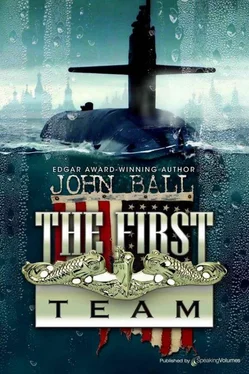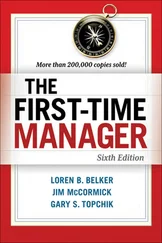Джон Болл - The First Team
Здесь есть возможность читать онлайн «Джон Болл - The First Team» весь текст электронной книги совершенно бесплатно (целиком полную версию без сокращений). В некоторых случаях можно слушать аудио, скачать через торрент в формате fb2 и присутствует краткое содержание. Год выпуска: 2013, Жанр: Триллер, на английском языке. Описание произведения, (предисловие) а так же отзывы посетителей доступны на портале библиотеки ЛибКат.
- Название:The First Team
- Автор:
- Жанр:
- Год:2013
- ISBN:нет данных
- Рейтинг книги:5 / 5. Голосов: 1
-
Избранное:Добавить в избранное
- Отзывы:
-
Ваша оценка:
- 100
- 1
- 2
- 3
- 4
- 5
The First Team: краткое содержание, описание и аннотация
Предлагаем к чтению аннотацию, описание, краткое содержание или предисловие (зависит от того, что написал сам автор книги «The First Team»). Если вы не нашли необходимую информацию о книге — напишите в комментариях, мы постараемся отыскать её.
Student protesters are being slaughtered in the Midwest.
The Jewish pogroms have begun.
You are now living in Soviet — occupied America!
One nuclear submarine and a handful of determined patriots against the combined might of Russia and Soviet-occupied America… The Most Explosive and Gripping “What If” Novel of Our Time!
First published January 1971
The First Team — читать онлайн бесплатно полную книгу (весь текст) целиком
Ниже представлен текст книги, разбитый по страницам. Система сохранения места последней прочитанной страницы, позволяет с удобством читать онлайн бесплатно книгу «The First Team», без необходимости каждый раз заново искать на чём Вы остановились. Поставьте закладку, и сможете в любой момент перейти на страницу, на которой закончили чтение.
Интервал:
Закладка:
What was left of the dumpster still dangled from the great high boom which stretched well out over the water.
“Left five degrees,” the OD directed.
“Left five degrees,” the talker repeated and passed the order below. Seconds later the stern began to show movement away from the pier.
Then the captain looked up. Very high overhead the figure of the crane operator was visible out on the catwalk which ran the length of the boom. He was bent low and moving forward as fast as he safely could. He continued on, right to the end, and then stopped with nothing but dizzying height and a vast emptiness before him and looked down fearlessly at the submarine far below. Carefully he judged the rate of her progress; when the turn was well begun he raised his arms to shoulder height, held them out, and slowly leaned forward into the open void.
For several fractions of a second he seemed to hang there at an angle over empty space, then he began to fall. Gradually at first, then with increasing speed, he dropped, his body rotating slowly in the air as he held it straight, his arms now at his sides. He plunged downward at mounting speed for a long three seconds like a hurtling meteorite, and then hit the water. He went straight in, feet first, and disappeared. Seven seconds later his head came up less than fifty feet from the port side of the submarine, which was moving a little faster now as it turned into the channel.
A crewman who had been waiting safely behind the sail stepped forward and threw a light line expertly behind him. As the ship moved forward the diver caught it and held on while some mechanism he could not see pulled him in. As he felt the hull with his feet he heard the shouts of men from the pier behind him; a bullet plowed the water beside him.
He was on the deck in another three seconds and running in a zigzag pattern the few steps to the sail. He found sanctuary behind it where the crewman who had thrown him the line was holding open the door. As he stepped inside he noted that all of the top hatches were already closed and secured.
On the bridge the OD said, “Seventy turns.” The scattered shooting at the submarine had stopped; she was pointed at 355 degrees now and the Oakland Bay Bridge was visible in the first light some four and a half miles ahead.
The speed of the ship began to increase until there was a visible bow wave beginning to build.
“All ahead full.”
“All ahead full, sir,” the talker repeated and relayed it below. In the now almost unearthly quiet well before sunrise the whole desperate venture seemed to be suddenly almost a peaceful cruise. The captain, with binoculars, was carefully studying the shoreline on the port side. The enemy knew now and had known for some minutes, and they could be expected to be taking some action. What that action might be he did not know but he was gravely concerned. Although the tide was in and just beginning to ebb, he knew that he could not depend on more than fifty feet of water depth, and Magsaysay drew almost thirty-seven feet on the surface.
He felt a sense of comfort in the increasing speed. The ship was accelerating now as fast as she could without causing excess cavitation, but he still had a fourteen-minute run to reach the Bay Bridge at the rate they were going. The bow wave built up slowly, giving testimony to faster progress through the water.
“All ahead flank,” the OD said.
“All ahead flank.” The order went below for maximum speed. Once that order was given nothing more could be done to hurry the ship’s progress; hopefully the very early hour would catch some of the enemy forces literally asleep.
A mile out from shore the Magsaysay passed the Army Street terminal; she was moving better now and her forward speed provided a light breeze on the bridge. The OD felt it gratefully and nodded to the captain, who smiled a little tensely. By the grace of God there was no visible traffic ahead likely to get in the way. There was plenty of water, but a big freighter maneuvering in could have forced an alteration of course which would be expensive in time, and every minute was increasingly precious.
“Steer three four seven.”
“Three four seven.”
In the calm water of the bay the submarine rode so smoothly as to seem almost still. When the speed at last reached and passed twenty knots, the OD could almost sense the captain’s reaction, although he gave no outward indication. There was nothing more that could be done now that was not being done, running on the surface toward the open water of the Pacific. There was a little comfort in the fact that full surface speed had not yet been attained, the ship was still accelerating; the bow wave was still building up.
“I know the temptation to save an extra five minutes,” the captain said, “but don’t let her get within small-arms range of the shore. Two thousand yards minimum except where we can’t help it.”
“Yes, captain, will do.”
Magsaysay was making twenty-one and a half knots and still gaining slightly. She could go much faster submerged, but that would not help her now. Ahead the Oakland Bay Bridge was visibly much closer than it had been.
“Steer three three zero,” the OD directed.
“Three three zero, sir.” The phone talker retained his calm and passed the order crisply. He was a good young professional and the captain took note of it. Because of the extraordinary circumstances, he knew very few of the crew members who were serving under him, but that would be rectified.
Twenty-two and a half knots showed — that was about the best that she could do, although her full performance spectrum had not yet been determined; she was the first of her class and she incorporated a number of refinements that had not yet been fully explored. In the east the sky was very bright now and there were beginning hints of the sunrise to follow.
Four minutes later Magsaysay began to pass under the Oakland Bay Bridge.
“Steer three one zero.”
“Three one zero, sir.”
The OD checked a bearing on the Alcatraz water tank.
“They could be laying for us at North Point,” the captain reminded.
“Yes, sir, I’m keeping Blossom Rock on the port side.”
The mile-and-three-quarter run to the rock took an agonizing five minutes; during most of the time the captain kept a careful watch on the sky, looking for planes. The OD was tense now; the element of surprise had been dissipated and all hell would be breaking out wherever in the area the enemy had forces in being. The fearful firepower that Magsaysay represented was well known, and every possible means that could be employed on short notice to stop her would be totally committed.
One more landmark: the Blossom Rock was passed. “Steer two six nine.”
“Two six nine, sir.”
With unruffled dignity Magsaysay slowly turned until she was aimed straight toward the Golden Gate, three and a half miles ahead. Ten precious minutes would be needed to reach it. After that the land area would be left behind, but beyond the gate there lay eleven and a half miles more of shallow water and Four Fathom Bank that would force the submarine to use the ship channel until at last she reached hundred-foot-deep water and minimum diving depth. Meanwhile she was moving on the surface in clear and gaining daylight, a broad wake marking her exact position.
17
When Operation Low Blow had been in its final planning stages, Admiral Haymarket had sketched out the primary areas of major concern and determined in his own mind whom he would assign to be responsible for each of them. For all of the coordinating and operation at Hunters Point — Walter Wagner. Ted Pappas had wanted that assignment desperately, but he could not match Wagner’s field experience or his exceptional ability to dive unhesitatingly and safely more than a hundred feet from a crane boom into the water. There had not been any other acceptable method of recovering the crane operator available and therefore he had had to concede.
Читать дальшеИнтервал:
Закладка:
Похожие книги на «The First Team»
Представляем Вашему вниманию похожие книги на «The First Team» списком для выбора. Мы отобрали схожую по названию и смыслу литературу в надежде предоставить читателям больше вариантов отыскать новые, интересные, ещё непрочитанные произведения.
Обсуждение, отзывы о книге «The First Team» и просто собственные мнения читателей. Оставьте ваши комментарии, напишите, что Вы думаете о произведении, его смысле или главных героях. Укажите что конкретно понравилось, а что нет, и почему Вы так считаете.












